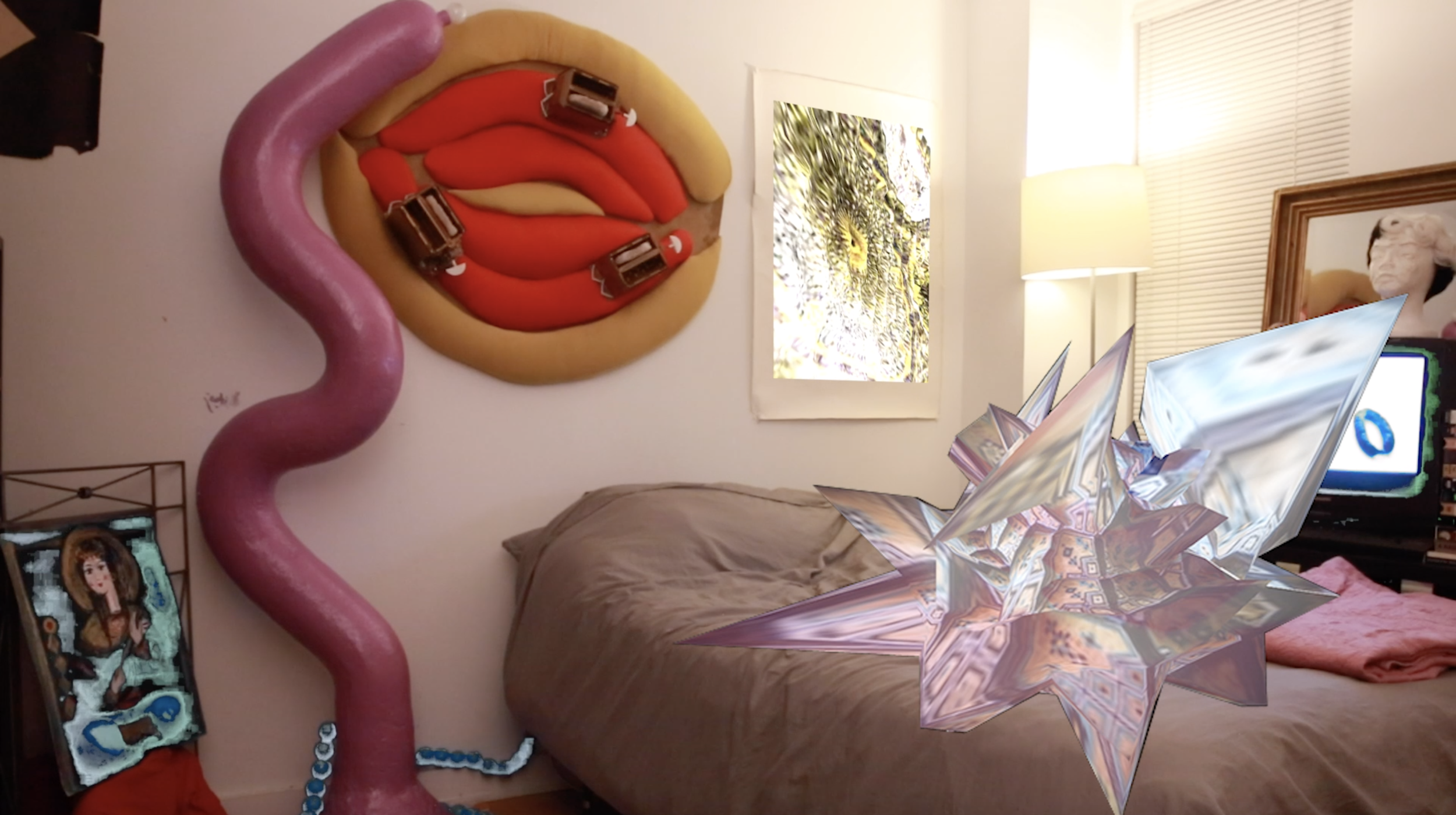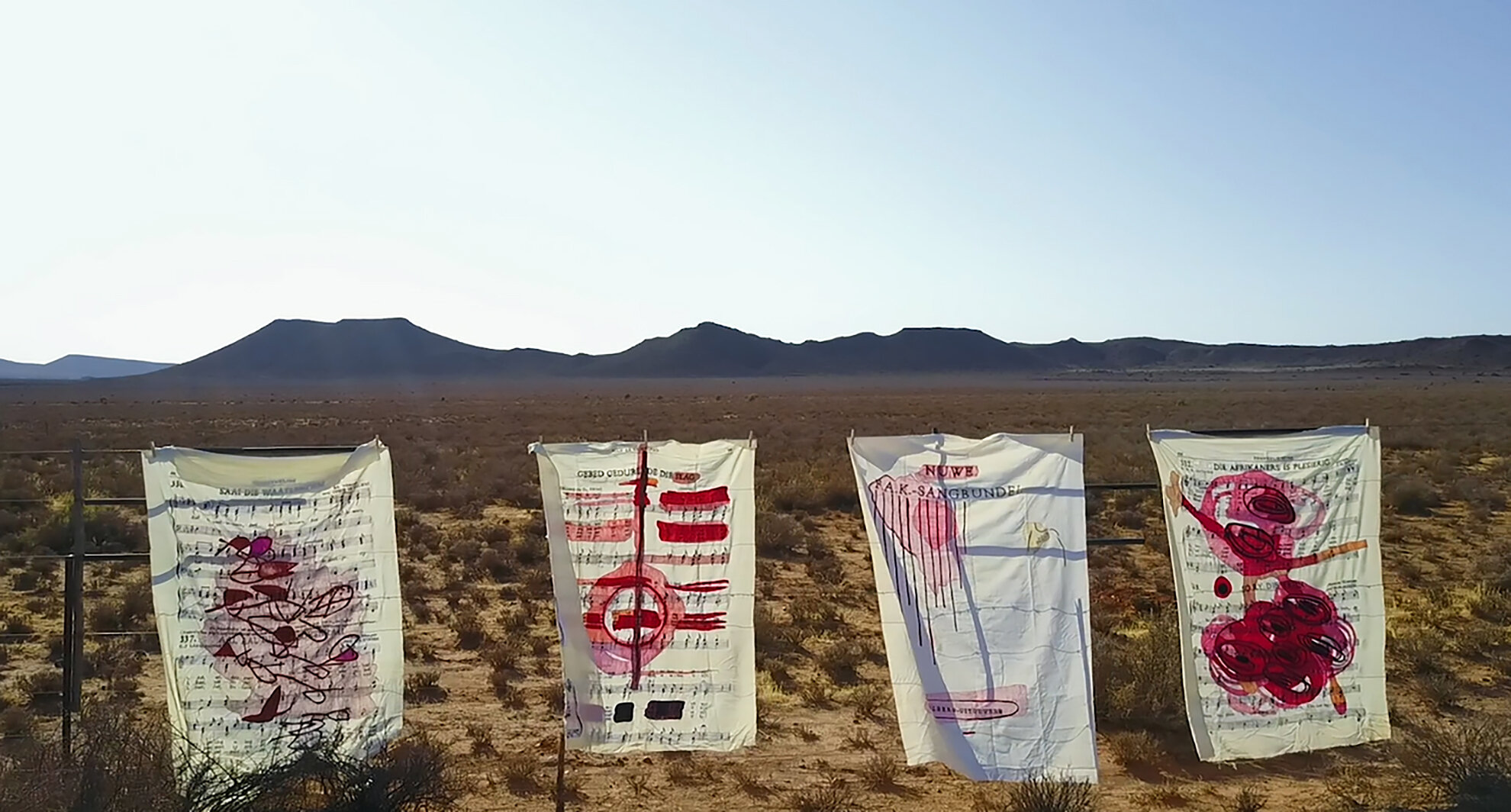HEKLER RESIDENCY: LIZA GROBLER & SAHAR SEPAHDARI
BELGRADE (SRB) - NOV 14 - DEC 14, 2019
Image 1: Sahar Sepahdari, globalization bread, 2019. video still
Image 2: Liza Grobler, Voices from a divided fountain, 2018
Residency period: November 14 – December 14, 2019
Location: Belgrade, Serbia
Residency Host: HEKLER
HEKLER is pleased to announce a one month artist residency in Belgrade organized in conjunction with the group exhibition hybrid narratives, hybrid histories with works by Darko Vukić, Liza Grobler, Mirza Dedać, Mila Panić, Igor Ripak, Sahar Sepahdari, Goran Stojčetović, curated by Belgrade-based artist and our collaborator Nadežda Kirćanski. This residency hosts exhibiting artists Liza Grobler and Sahar Sepahdari, who arrive from Cape Town (SA) and New York (USA) respectively. Conceived as a thinking and collaborative hub for all exhibiting artists, the residency is an environment to discuss individual practices and positions in relation to unifying exhibition concepts, and to share professional experiences and resources. Local fellow artists and curators will provide insights into current art practices and cultural initiatives, with the idea that this concentrated time together will continue living through new collaborations.
Nataša Prljević had a pleasure meeting Nadežda in New York while she and Liza Grobler were artists in residence at Residency Unlimited, where she worked as the Executive and Curatorial Assistant. During this period HEKLER have realized first HOST and MEDIUM programs, highly appreciating participants feedback regarding the collaborative methodologies, examining shifting structures and roles within the platform. Our collaboration with Sahar started with HEKLER Medium: War, Memory, Protest organized in collaboration with Farideh Sakhaeifar and Sadra Shabab, a screening and round table discussion focused on a relationship between the economy of war and visual culture where she shared her video work. There was a clear and shared necessity to embrace the potential of plural artistic position, one of a worker, catalyst, organizer, and most importantly care taker. It is a true joy, Sahar would say radical joy, to see how continuous conversations about invisible emotional labor, patriarchal, often toxic masculine institutions and education, and globalization, brought together a wonderful group of people to work closely together. The experience that had a thorough influence on scaling this into a project was meeting HEKLER’s activities and general mission which overlapped very much with what motivated Nadežda to develop this exhibition in the first place. Instead of having a solo exhibition, Nadežda decided to curate works of the artists she finds herself in conversation with, creating a discourse around post-memory much:
Works and experiences shared in hybrid narratives, hybrid histories explore the storytelling instruments that serve a counter-history, revealing and archiving the marginal, overseen, and hidden perspectives in correlation to the post-factuality era we have entered this millennium. It offers a virtual and physical forum to discuss our role in historical knowledge production and the ways we convey these narratives and methods to the next generations.
The encounter with this platform and collective has metabolically grown into an ongoing collaboration which resulted in hybrid narratives, hybrid histories, an international art project consisting of a three-week residency for visiting artists in Belgrade and a group exhibition hosted in two cities, U10 Art Space in Belgrade & Contemporary Gallery Zrenjanin, Zrenjanin, Serbia. HEKLER worked closely with Sahar to secure funds for her travel through grant writing, the residency accommodation costs for the artists in Belgrade as well as portion of artwork production next to the number of local supporters including the Ilija & Mangelos Foundation that supports the Mangelos Awardees with realizing solo exhibitions following their residency stay in New York.
Liza and Sahar will share their experiences as the residency unfolds, and in the meanwhile you can learn more about their practices in the bios below.
Liza Grobler
Liza Grobler is a South African artist who works with a variety of media often exploring ideas that bring together physical and psychological spaces and historical and ecological scapes. Her practice is built around process, putting materiality and ephemerality of the objects and media she works with in tension.
In 2016, she was a recipient of the Africa Centre Award and a IZIKO Museums commission to create a site-specific work for the National Gallery. Other career highlights include: a solo project for Cape Town International Art Fair (2017), a commissioned public artwork for Cape Town International Design Capital (2015) and the screening of her video work at the ADDIS International Video Arts Festival (Ethiopia) and at MOFO for Forever Now (Tasmania and Deep Space, 2015). She was nominated for the Helgaard Steyn National Award for Contemporary Painting (2015), as well as short-listed for the Commonwealth Arts and Craft Award(2006). She attended residencies in Norway, Finland, Switzerland, Belgium, France, Mexico, India, the United States (ARTOMI and Residency Unlimited) and initiated an international residency and exhibition ‘Smokey Signals from the Groot Karoo’ in South Africa (2017).
Exhibitions include, solo exhibitions nationally and international group and site-specific projects. Blindfolded Line, Dancing Through Time (2014), travelled to various museums in South Africa. Her most recent solo at Everard Read Cape Town, ‘A rainbow in my pocket’, concluded in November 2019 and her new film, ‘Voices at a Divided Fountain’ will debut in Belgrade at the end of November. Her beaded work in collaboration Qaqambile bead studio will be showcased at the Context Art Miami Fair in December 2019. She is represented by Everard Read Galleries (Cape Town, Johannesburg, London)
Sahar Sepahdari-Dalai
Sahar Sepahdari-Dalai is a video and performance artist living in Brooklyn, NY originally from Iran. Sepahdari-Dalai works within the axis of healing as a space for multiplying meaning through translation and embodiment. Thinking through object-oriented ontologies and time-based art, she is concerned with decoding social norms and cultural intersections through complex humor. Writing is at the core of Sepahdari-Dalai’s practice as is the poetics of place. She has curated an on-going show called Digital Diaspora, featuring artists within the Islamic Diaspora centering Black Muslim Artists. She has performed or shown video works at Abrons Arts Center, The New Museum, Eyebeam, and Judson Memorial Church in NYC. She recently performed at The Haskell Opera House on the border of the U.S. and Canada as a contemporary version of Emma Goldman. In a surrealist post internet exploration with Dadaist style musicians.


